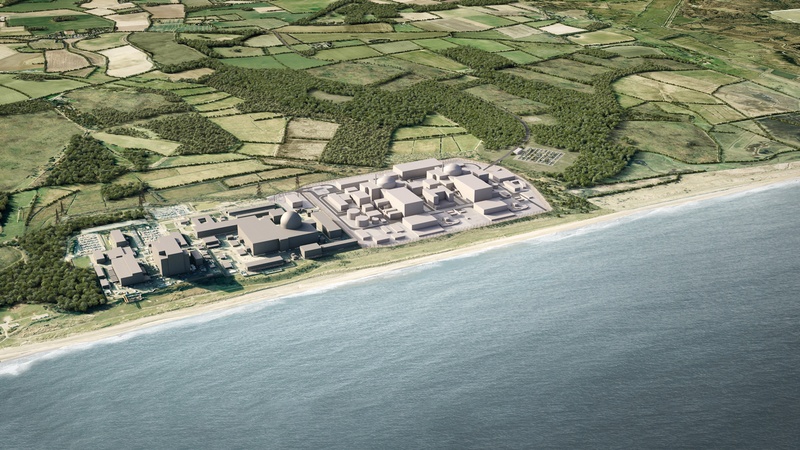The upcoming Sizewell C nuclear power station could finally be given the green light at a summit next month, more than a year after construction began.
The government considers the expansion of Britain’s nuclear energy capabilities a key part of the long-term decarbonisation of the UK’s energy grid.
Following Hinkley Point C, which is expected to be generating by the end of the decade, Sizewell C should become the next station to be brought online at some point in the mid-2030s. Its design is based heavily on Hinkley Point C in an attempt to speed up the construction process and allow teams from one project to move over to the other once Hinkley has been completed.
But while formal construction works began in January 2024, the final investment decision for Sizewell C still hasn’t been made. It is a joint project between the UK government, which currently owns 83.5% of the project and French energy giant EDF, which owns the remainder.
Sizewell C was originally proposed by a consortium of EDF Energy and China General Nuclear Power Group (CGN), who at the time owned 80% and 20% of the project respectively. But in 2022, security concerns about China caused the UK government to buy CGN out of the development for just over £100m and increase its stake to 50%. Since then, EDF has been slowly lowering its stake in the project, which coincided with major losses suffered by the firm during the building of Hinkley Point C.
The decision is expected to be announced at a joint meeting between Prime Minister Keir Starmer and President Emmanuel Macron at a Franco-British summit in London in July following the final bids from private investors at the end of June. According to the Financial Times, these investors include the Singaporean infrastructure fund GIC, the Canadian pension fund CDPQ, Amber Infrastructure Partners, Brookfield Asset Management, pension fund USS, Schroders Greencoat and Equitix.
The facility is expected to cost at least £20bn and generate energy at a more expensive price than wind and solar. However, it would offer base load capacity for the grid, which renewables do not.
Reports in January suggested that the total estimated cost of its construction has swelled to £40bn since the initial estimates, although that has not been confirmed by the government.
Unite recently urged the government to “put their money where their mouth is” and make its final investment decision. It said that, once built, Sizewell C would create up to 10,000 jobs and become a key part of the energy strategy for achieving net zero by 2050.
